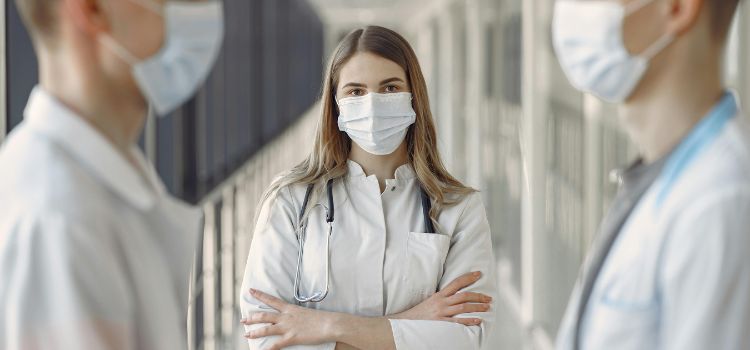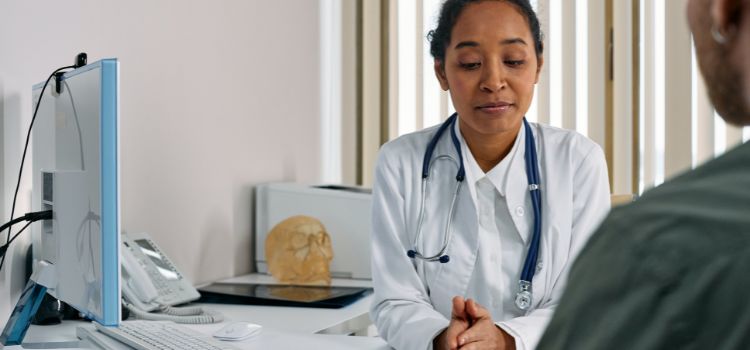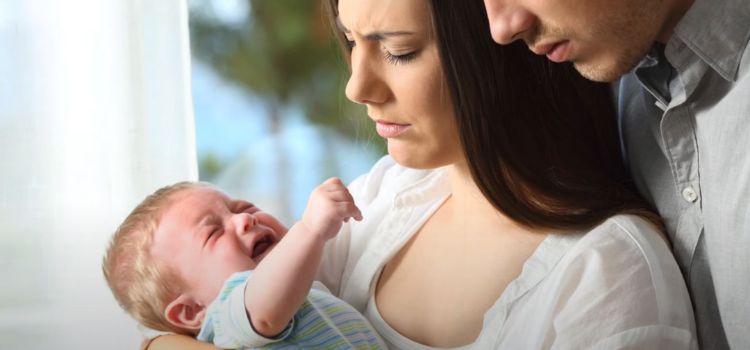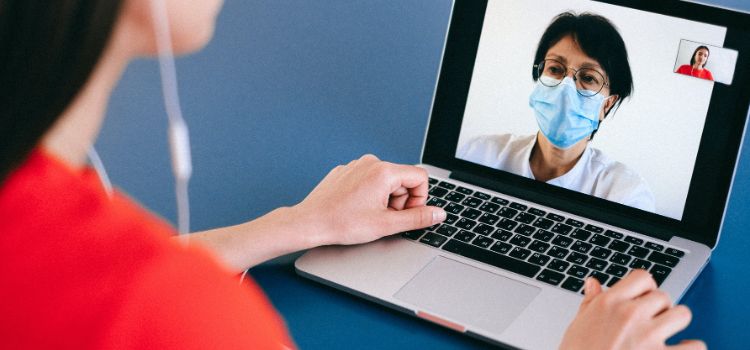
No, doctors will not automatically call Child Protective Services (CPS) if a baby falls off a bed. However, if there are any signs of injury or concern for the child’s safety and well-being, it is recommended to seek medical attention and inform a healthcare professional about the incident.
It is important to prioritize the child’s health and safety in such cases.
Understanding The Risks Involved When Baby Falls Off Bed

It’s important to understand the risks involved if a baby falls off the bed, as it may lead to injuries. While doctors generally prioritize the health and safety of the child, it’s unlikely that they would automatically report such an incident to Child Protective Services (CPS) unless there are signs of neglect or abuse.
When it comes to babies, their safety is always a top priority. As a parent, you may have concerns about what could happen if your baby falls off the bed. Understanding the risks involved is crucial in preventing accidents and ensuring your baby’s well-being.
How Common Are Falls From The Bed?
Babies are more mobile than we often give them credit for, and it’s not uncommon for them to end up taking an unexpected tumble from the bed. Here are some key points to consider:
- Babies falling off beds is a relatively common occurrence, with studies indicating that it happens more frequently than we might think.
- The American Academy of Pediatrics (AAP) reports that falls from elevated surfaces, including beds, account for a significant number of injuries in infants and toddlers.
- The incidence of falls from the bed tends to be higher in crawling or rolling infants who have not yet developed the sense of danger.
Potential Injuries From Falling Off The Bed
Even a seemingly harmless fall from the bed can result in injuries for your baby. It’s important to be aware of the potential harm that could occur:
- Head injuries: Falls from the bed can lead to head trauma, including concussions or skull fractures. The force of the impact can cause harm to the delicate brain structures of an infant.
- Broken bones: Babies have delicate bones, and a fall can result in fractures, particularly in the arms, collarbones, or legs.
- Soft tissue injuries: Bruises, cuts, sprains, or strains can occur when a baby falls off the bed and lands on hard or sharp objects.
Factors That May Affect The Severity Of The Injury
Several factors can influence the severity of the injury in case your baby falls off the bed:
- Height of the fall: The higher the fall, the greater the potential for injury. Falls from higher surfaces, such as adult beds, pose a higher risk for more severe injuries.
- Surface of impact: The type of surface on which your baby lands can significantly impact the injury outcome. A soft carpet or a hard floor can make a difference.
- Age and development: Infants who have not gained enough control over their bodies or have an unstable gait may be more susceptible to injuries from a fall.
- Impact point: If the baby’s head is the primary point of impact, the risk of head injury increases.
Remember, accidents can happen despite our best efforts to prevent them. It’s important to take proactive steps to ensure that your baby’s sleeping environment is as safe as possible to minimize the risk of falls and potential injuries.
Signs That Indicate Medical Attention Is Needed

If a baby falls off the bed, it is important to seek immediate medical attention. Signs such as vomiting, loss of consciousness, or abnormal behaviour may indicate the need for professional care. It is always better to be safe and consult a doctor to ensure the baby’s well-being.
Falls are not uncommon, especially when it comes to curious little ones exploring their surroundings. If your baby falls off the bed, it’s natural to worry and wonder if you should seek medical help.
While not every fall requires a doctor’s attention, there are certain signs you should watch out for to ensure your baby’s well-being.
In this section, we will look at when to seek immediate medical assistance, symptoms to watch out for after the fall, and red flags that suggest further investigation is necessary.
When To Seek Immediate Medical Assistance
- Loss of consciousness: If your baby loses consciousness, even for a brief moment, it’s crucial to seek immediate medical attention. This could be an indication of a head injury or concussion.
- Abnormal breathing: Any changes in your baby’s breathing pattern, such as shallow breathing, difficulty breathing, or prolonged periods of breathlessness, should not be ignored.
- Seizures: If your baby experiences a seizure after the fall, it’s essential to seek medical help right away. Seizures can be a sign of a serious underlying condition.
- Excessive bleeding: If the fall results in profuse bleeding that doesn’t stop with gentle pressure or the wound appears deep or gaping, seek immediate medical attention.
- Obvious deformity or bone protrusion: If you notice any unusual bone alignments, deformities, or if a bone is visibly protruding, your baby should be evaluated by a medical professional immediately.
Symptoms To Watch Out For After The Fall
- Prolonged crying or irritability: If your baby continues to cry inconsolably or seems unusually irritable after the fall, it could indicate an injury or discomfort.
- Changes in behavior: Look out for changes in your baby’s behavior, such as sleepiness, excessive fussiness, or a significant decrease in appetite. These changes may signify a need for medical attention.
- Vomiting or nausea: If your baby vomits more than once after the fall or seems nauseous, it’s advisable to consult a healthcare professional.
- Headache or dizziness: Older children may complain of a headache or dizziness after a fall. Pay attention to these symptoms, as they could indicate a more severe head injury.
Red Flags That Suggest Further Investigation Is Necessary
- Unequal pupil size or unresponsive pupils: If you notice that your baby’s pupils are of different sizes or not reacting to light, it could be a sign of a serious head injury.
- Altered consciousness: If your baby displays confusion, disorientation, or unresponsiveness, seek immediate medical attention.
- Loss of movement or weakness: If your baby is unable to move one or more limbs after the fall, it could indicate a spinal injury and requires urgent medical evaluation.
- Changes in vision: Blurred vision, double vision, or other visual disturbances should not be overlooked, as they may indicate a head or eye injury.
Remember, each child is unique, and the severity of a fall and its accompanying symptoms can vary. It’s always better to err on the side of caution and seek medical attention if you have any concerns about your baby’s well-being after a fall.
The health and safety of your little one should always be the top priority.
Should You Consult A Doctor After Your Baby Falls Off Bed

If your baby falls off the bed, it is important to consult a doctor to ensure their well-being. Medical professionals can provide the necessary guidance and assess any potential injuries to ensure proper care for your child.
The Importance Of Seeking Medical Advice
It can be a distressing experience for parents when their baby falls off the bed. While some falls may seem harmless, it’s crucial to consult a doctor to ensure the baby’s well-being. Seeking medical advice in such situations is essential for several reasons:
- Assessing potential injuries: A healthcare professional can evaluate the severity of the fall and determine if any injuries have occurred.
- Identifying hidden injuries: Even if there are no immediate visible signs of injury, there may be internal damage that only a doctor can diagnose.
- Preventing long-term complications: Prompt medical attention can help prevent complications that may arise from undiagnosed injuries.
- Providing peace of mind: Consulting a doctor can alleviate the anxiety that comes with uncertainties about the baby’s health after a fall.
Reasons Why You Should Consult A Healthcare Professional
When it comes to your baby’s well-being, it’s better to be safe than sorry. Here are several reasons why consulting a healthcare professional is the best course of action:
- Medical expertise: Doctors have the necessary knowledge and experience to assess the situation accurately and make informed decisions about the baby’s care.
- Early intervention: Prompt medical attention can address any potential injuries before they worsen, minimizing the risk of complications.
- Comprehensive evaluation: Healthcare professionals can conduct a thorough assessment, considering all possible factors, and utilizing medical equipment if necessary.
- Specialized knowledge: Pediatricians are trained to recognize the specific symptoms and signs of injuries in infants and can provide appropriate treatment or referral.
- Proper diagnoses: Doctors can effectively distinguish between minor bumps and more serious injuries through physical examinations, medical history review, and, if needed, further diagnostic tests.
Steps To Take After Your Baby Falls Off The Bed
After your baby falls off the bed, it is natural to worry about potential injuries. While doctors may not immediately contact CPS, it is advisable to monitor your baby for any signs of distress and consult a healthcare professional if necessary.
It’s every parent’s worst nightmare – the moment your baby takes a tumble from the bed. Panic sets in, and you find yourself wondering what immediate actions you should take to ensure your baby’s safety. We will guide you through the appropriate steps to follow when your baby falls off the bed.
From mitigating minor injuries at home to understanding the importance of follow-up appointments, we’ve got you covered.
Immediate Actions To Ensure Your Baby’s Safety
- Stay calm: It’s natural to feel anxious, but it’s crucial to remain calm and composed. Your baby can sense your emotions, so try your best to project a sense of reassurance.
- Check for immediate injuries: Assess your baby for any visible injuries or signs of distress. Look for bumps, bruises, bleeding, or difficulty breathing.
- Contact emergency services if necessary: If your baby is unconscious, having trouble breathing, or showing signs of a serious injury, call emergency services right away.
Home Remedies To Alleviate Minor Injuries
- Apply cold compress: If your baby has a bump or swelling, gently apply a cold compress wrapped in a cloth to the affected area. This can help reduce inflammation.
- Offer comfort and support: Hold and soothe your baby to provide emotional support. Being held close can also help alleviate any discomfort your little one may be experiencing.
- Observe for any changes: Keep a close eye on your baby for the next few hours. Look for signs of drowsiness, vomiting, or behavior changes. If you notice any concerning symptoms, contact your pediatrician.
The Significance Of Follow-Up Appointments
- Schedule a pediatrician visit: Even if your baby appears fine after falling off the bed, it’s essential to make an appointment with your pediatrician. They can thoroughly assess your baby’s condition and provide any necessary medical advice or treatments.
- Discuss with the doctor: During the visit, don’t hesitate to share any concerns or questions you may have. The doctor can answer your queries and provide guidance on preventing future falls.
- Monitor for delayed effects: Some injuries may not immediately manifest symptoms. Stay vigilant and observe your baby for any delayed effects, such as changes in behavior or trouble with movement, in the days following the incident.
Remember, accidents happen, and it’s not uncommon for babies to fall off beds. By taking immediate actions, providing home remedies for minor injuries, and attending follow-up appointments, you can ensure your baby’s safety and well-being.
Preventing Accidental Falls
Baby falling off the bed can be a scary experience for parents. Many wonder if doctors will call Child Protective Services (CPS). Understanding preventative measures and seeking medical attention can help ensure the safety and well-being of your child. Remember, accidents happen, but being proactive can minimize the risk.
Babyproofing Techniques For The Bedroom
Having a newborn at home can be both exciting and overwhelming. Ensuring their safety is a top priority for every parent, especially when it comes to preventing accidental falls. Here are some babyproofing techniques you can implement in the bedroom to minimize the risk of falls:
- Choose a low bed: Opt for a low-lying bed or a mattress on the floor, reducing the potential fall height if your baby happens to roll off.
- Create a barrier: Install bed rails or a guardrail on the side of the bed to prevent your little one from rolling off during sleep.
- Clear the surroundings: Remove any sharp objects, toys, or items that may pose a tripping hazard near the bed. Keep the bedroom clutter-free to minimize accidents.
- Cover electrical outlets: Use outlet covers or plug inserts to ensure your baby cannot access electrical outlets near the bed.
- Secure cords and wires: Keep cords from blinds or other gadgets out of your baby’s reach by securing them with cord holders or taping them to the wall.
- Anchor furniture: Anchor dressers, shelves, or any other furniture that could potentially tip over and injure your baby. This will prevent accidents caused by climbing or pulling on furniture.
Creating A Safe Sleep Environment
A safe sleep environment goes a long way in preventing accidents and ensuring the well-being of your little one. Consider implementing the following measures for a secure sleep space:
- Choose a crib or bassinet: Opt for a crib or bassinet that meets safety standards, providing a secure space for your baby to sleep. Ensure the mattress fits snugly to prevent entrapment.
- Skip the pillows and blankets: Remove pillows, blankets, or any loose bedding from the crib to reduce the risk of suffocation. Instead, dress your baby in appropriate sleepwear for comfort.
- Maintain optimal room temperature: Keep the room temperature comfortable and avoid overheating your baby. Use a room thermometer to ensure the temperature falls within the recommended range.
- Position crib away from hazards: Place the crib away from windows, curtains, cords, and blinds to prevent entanglement or climbing accidents.
- Use a baby monitor: Consider using a baby monitor to keep an eye on your little one while they sleep. This will allow you to respond quickly if any issues arise.
Strategies To Minimize The Risk Of Falls
In addition to babyproofing the bedroom and creating a safe sleep environment, there are further strategies you can adopt to minimize the risk of falls:
- Supervise your baby: Keep a watchful eye on your baby when they are on the bed or any elevated surface to prevent falls. Never leave them unattended, even for a short period.
- Practice safe co-sleeping: If you choose to co-sleep with your baby, ensure you follow safe co-sleeping guidelines to minimize the risk of accidental falls.
- Encourage tummy time: Regular tummy time sessions during waking hours help build your baby’s strength and coordination, reducing the likelihood of accidental falls.
- Educate caregivers: Whether it’s grandparents, babysitters, or daycare providers, make sure they are aware of the babyproofing measures and safety guidelines to ensure consistency in preventing falls.
- Stay up to date on developmental milestones: As your baby grows, their physical abilities change. Stay informed about their developmental milestones and adjust the safety measures accordingly.
Frequently Asked Questions For Will Doctor Call CPS If Baby Falls Off Bed
Will Falling Off The Bed Hurt My Baby?
Falling off the bed can potentially cause injury to your baby. It is important to take precautions by using bed rails and placing soft padding on the floor. Always supervise your baby and seek medical attention if there are any signs of injury.
When Should I Be Concerned If My Baby Falls Off The Bed?
If your baby falls off the bed and exhibits unusual behavior, seems excessively lethargic or irritable, refuses to eat, or experiences vomiting, it is important to seek medical attention immediately. These could be signs of a more serious injury and should not be ignored.
How Can I Prevent My Baby From Falling Off The Bed?
To prevent your baby from falling off the bed, use bed rails to create a barrier. Ensure the bed is placed against a wall to provide additional support. Place soft padding on the floor to cushion any potential falls. Always supervise your baby during sleep and playtime.
At What Age Can A Baby Safely Sleep In A Bed Without Falling Off?
Each baby develops at their own pace, but most babies can safely sleep in a bed without falling off around the age of two to three years. However, it is important to continue practicing precautionary measures such as using bed rails and supervising your child until they are capable of safely navigating the bed on their own.
Conclusion
It’s natural for parents to worry about their baby’s safety, especially if they accidentally fall off the bed. While it can be a distressing experience, it’s important to remember that doctors prioritize the wellbeing of children above all else.
If a baby falls off the bed, your doctor is unlikely to immediately report the incident to Child Protective Services (CPS) unless there are clear signs of neglect or abuse. The focus is on providing medical care, assessing any injuries, and offering guidance to prevent future accidents.
However, it’s crucial to create a safe environment for your little one by using appropriate bedding, putting up barriers, and practicing attentive supervision. Regularly discussing your concerns with your doctor will help alleviate any worries and ensure you are well-informed about child safety measures.
Remember, accidents happen, and it’s best to approach this situation with understanding and a commitment to creating a secure space for your baby’s growth and development.
Leave a Reply